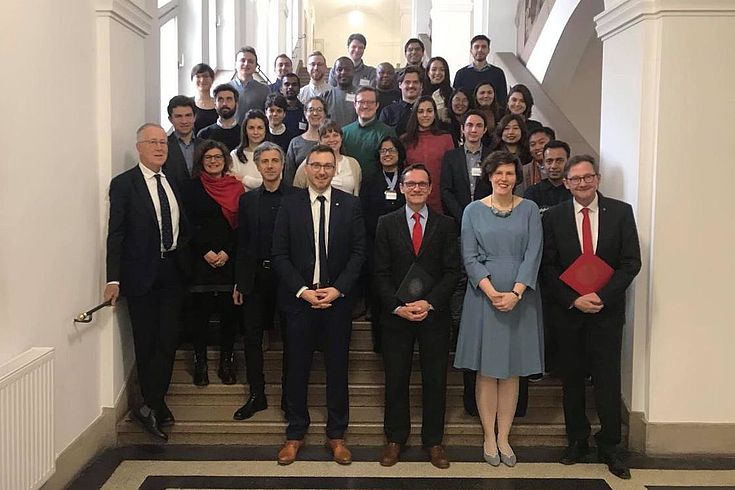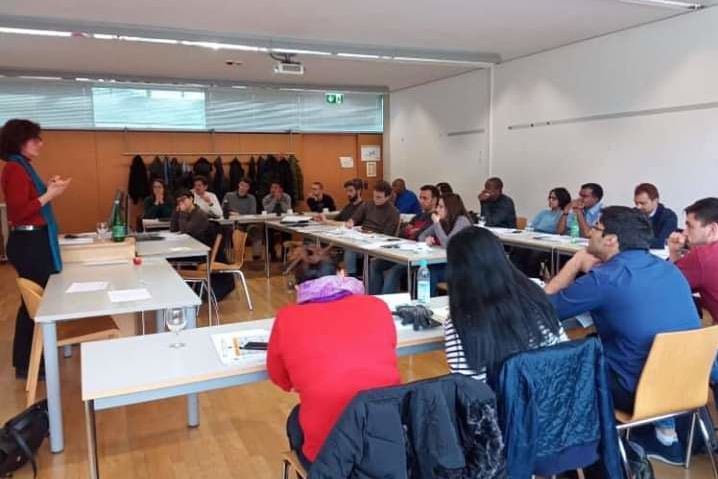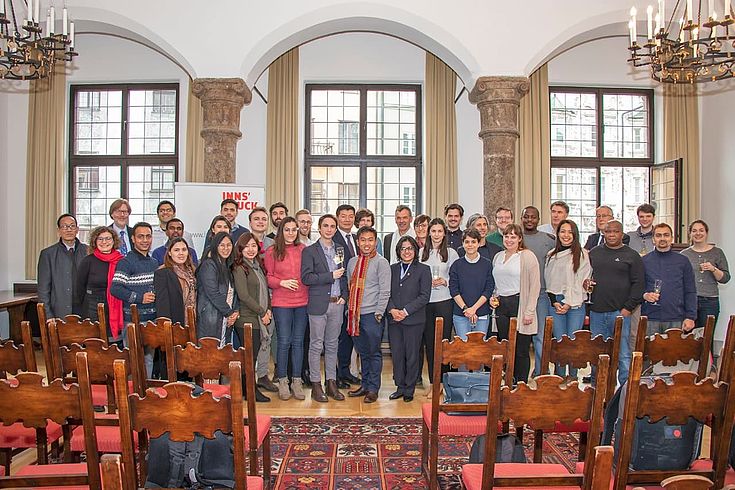Federalism and Language
PH participants analyse interplay between federalism and language
HSF
Federalism, along with language, which is referred to by some as “the key to understanding,” were the focus of analysis and in-depth discussions during the “Winter School of Federalism and Governance 2020: Federalism and Language” held from 17 to 25 February 2020.
In order to better examine the interplay between federalism and language, the program gathered experts from nine countries to inspect the two through diverse lenses, to explore the correlation between language and law, the sub-national or local regulation of language in multi-level systems as well as the challenges and opportunities of linguistic diversity in order to gain a deeper understanding of these two topics, and especially, how they affect each other. The program of activities comprised lectures and discussion sessions, case studies, workshops and study visits in Innsbruck and Bolzano.
Participants from sixteen countries and five continents numbered twenty-six. They were mostly postgraduate students, civil servants as well as government officials, practitioners, and young academics, including two from the Philippine academic sector.
HSF
A wide range of case studies of symmetric and asymmetric federations, other multi-national states and the European Union, including examples from Europe, North America, Africa and Asia were reviewed and compared to illustrate the multi-faceted role language can play in federal systems in relation to education, the regulation of immigration and migrant integration, as well as institutional innovation.
The first week of the Winter School program took place at the Faculty of Law and at the Faculty of Social and Political Sciences of the Leopold-Franzens-Universität in Innsbruck, the capital city of Tyrol and said to be the fifth largest in Austria, a federal parliamentary republic. Even as German is the only official language, the country recognizes ten regional languages and, it is said that many Austrians communicate informally in a variety of Bavarian dialects. As the location of the program’s first week of sessions, Innsbruck, therefore, offers a wealth of experiences and information to share.
The Institute for Comparative Federalism of Eurac Research in Bolzano, a province of South Tyrol in Italy, was where the rest of the program was conducted. Even though it is a unitary parliamentary republic, the country has a long-standing linguistic diversity, having thirty-four living spoken languages and related dialects. This provides the opportunity for observing and experiencing the unique situation the Italian setting offers.
HSF
While the Philippines has one national language, it recognizes two official languages and twenty-one regional languages plus a host of more than one hundred and forty languages and dialects. Twenty-one of these are said to each represent a major indigenous language of Philippines that is spoken in areas inhabited by large populations of native speakers.
As the Philippine government expands the reach of its information dissemination drive on federalism throughout the country, advocating its shift from a unitary presidential constitutional republic system of government to that of a federal one, it is deemed important to better comprehend how the possible adoption of a federal system of government can impact the country and its people.
Upon completing the program, one of the participants from the Philippines expressed her intention, as an educator, to start incorporating the knowledge and information she has gained in her lectures in an effort to help contribute to the further education of the youth about federalism. The other broached the possibility of initiating an education drive on federalism concept for the Philippines using publicity to discuss the issues, concerns and benefits of federalism.
The Winter School of Federalism and Governance program was organized by the Eurac Research in cooperation with the University of Innsbruck. The participation of two Philippine representatives in the program was made possible through the support of the Hanns Seidel Foundation (HSF) in partnership with the Pimentel Institute for Leadership and Governance (PILG). As part of this partnership, there have been a total of seven participants to the two-week program of the EURAC Research Winter School on Federalism and Governance (Editions 2017 to 2020) held in Austria and in Italy.



